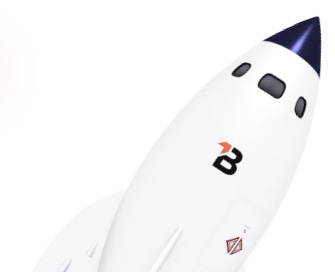💥Will Amazon Aggregators Aggregate in Bankruptcy?💥
Plus: A Robust August, AppHarvest & Joann Stores Updates & More.
In our May 8, 2022 paying-subscribers’-only newsletter titled …
… we included “Amazon Rollups” as our #1 loser of the week, declaring “Short AMZN Aggregators.” We wrote:
Amazon Inc. ($AMZN) has been, at least until last week, riding high and therefore merchants who’ve been leveraging Amazon’s third-party fulfillment network have also been in high demand. Aggregators became a hot thing, buying up Amazon merchants and rolling them up together over the last several years with competition at such a feverish pitch that multiples soared through the roof. One such aggregator, Thrasio, was valued at $3b just last year amidst a boom in e-commerce purchasing. It seems, however, the shine has come off. Thrasio is apparently now replacing its CEO and laying off employees. This appears to be the continuation of a trend: in March, The Information reported that a number of Amazon aggregators were struggling:It’s a cautionary tale for the e-commerce rollup industry: As online sales growth slows and supply-chain problems hit global manufacturers, firms that bought up independent sellers at frothy valuations are coming under pressure. And a string of rollups is now unloading some purchases or being swallowed entirely by bigger aggregators.
What goes up must come down.*****
We’ve been following the news around Thrasio — a company that’s received investment from the likes of Advent International and Oaktree Capital Management — ever since.1
It hasn’t been particularly good.
What follows is from a November ‘22 profile of Greg Greeley, the company’s then-recently-appointed-CEO in Forbes:
“So many people want to say Thrasio is a rocket ship. But they go really fast, then stop and just hang out in space. There’s no winning,” Greeley, 59, told Forbes in his first interview since joining the company in August. “Some rocket ships blow up, which is even worse.”
Thrasio didn’t blow up, but it did come back to earth earlier this year. After a period of soaring growth, the company hit a rough patch after pandemic lockdowns loosened up. Thrasio buys online brands that sell on the Amazon marketplace and uses its expertise to goose sales and profits by upgrading marketing, supply chain and other operations. With e-commerce slowing, the company conducted a round of layoffs and endured a period of turnover among its executive ranks, with both cofounders departing and its chief financial officer leaving after just three months. It even paused acquisitions for the first half of the year, according to Greeley.
Greeley said Thrasio is once again doing what it’s meant to do — actively evaluating new deals.
He did acknowledge the company made mistakes, which he said stemmed largely from an assumption that demand for online goods would remain at heightened, pandemic-era levels. Thrasio has since had to “recalibrate expectations,” he said, and make sure it’s not hiring too many people, holding too much inventory or offering multiples for new acquisitions that are too high.
To assist with that recalibration, the company subsequently hired a new CFO — someone, lol, from “instant delivery” company, Gopuff, another cash-incineration machine. He clearly didn’t have strong enough ties to the reporters at Bloomberg to prevent this piece from hitting the wire shortly after joining (on May 3):
Bloomberg reported:
During the pandemic, Wall Street banks and private equity firms invested billions of dollars in startups rolling up popular brands sold on Amazon.com Inc. The bet was that these upstarts, fueled by an online sales boom, would become the next consumer product conglomerates — like Procter & Gamble or Unilever.
Then the pandemic ended, consumers returned to the stores, and Amazon’s sales growth cratered — erasing almost half of its market value. Now the reckoning has arrived for these so-called brand aggregators.
With names like Thrasio, Razor Group and Perch, the companies aren’t widely known but over the past few years have shelled out tens of millions of dollars for tea kettles, foot massagers, peppermint-based jock-itch remedies, medicine balls, magnetic eyeglass holders, air purifiers and more. To finance the buying spree, they raised $16 billion – mostly debt – from big names like JPMorgan Chase & Co., Goldman Sachs Group Inc., BlackRock Inc. and Bain Capital, as well as smaller investment funds.
About that $16b:
The $16 billion that flowed into the nascent industry went to about 60 firms, according to Marketplace Pulse. Thrasio, the largest of them, raised $3.4 billion, including a $500 million round in 2021 that JPMorgan, Goldman Sachs, Bank of America Corp. and Morgan Stanley participated in. Berlin Brands Group, Razor Group, Perch and Heyday raised $1.3 billion, $1 billion, $908 million and $800 million respectively. Morgan Stanley declined to comment, and Bank of America didn’t respond to requests for comment.
Rising interest rates, higher costs and cooling online demand have pushed some of these upstarts to the edge, forcing them to seek debt relief or merge with one another, according to people familiar with the situation. There are so many aggregators and investors speaking with one another it’s difficult to predict which companies will emerge intact and which will get washed out. (emphasis added)
It is unclear how much debt, exactly, Thrasio has but it has clearly been taking steps to mitigate matters. Techcrunch reported in May that the founders of an Indian house of brands — a house of brands that Thrasio spent somewhere between $150-$200mm to purchase roughly a year before — had finalized a deal to repurchase their majority ownership stake from Thrasio, “…a retreat for the ‘Amazon aggregator’ from the key overseas market.”
In June, PracticalEcommerce highlighted the dire state of the industry. Underneath this B.R.U.T.A.L. chart…




